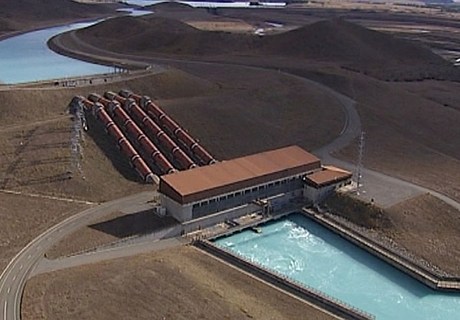What had Cabinet been smoking when it thought it could just push through sale of government assets without consulting Maori first? Have these folk never read the Treaty of Waitangi let alone got to grips with the post-1975 status of that Accord? Article Two is not that difficult to understand – let’s just put it in dumbed-down simple English.
Anything in this country that has not been sold by Maori in a willing seller, willing buyer deal is Maori property. The only reason Maori can’t have it is that the Waitangi Act says Maori cannot claim private property, and it’s up to the government to negotiate a settlement with Maori should they claim government property, including the government’s right (given it has the supreme power) to just turn Maori away if agreement cannot be reached.
The way this is handled in practice is Maori enjoy sole or joint guardianship over many State-owned assets. But where it become easier for Maori to score at least a portion of its property back is when the government tries to sell or privatise State assets. These instances compel the government to acknowledge Maori’s property entitlement and negotiate a settlement before it transacts.
This is exactly what happen with fishing quota when the government decided to privatise the Commons, and it happened with the auction of the radio spectrum. So why on earth shouldn’t it happen with this latest round of SOE privatizations? The Waitangi Tribunal’s recent ruling on the guardianship of water is totally consistent with these precedents. How on earth the Cabinet could think they could get away with this is pretty unreal.
So where to now? If it persists with its plan – and I dare say not to would be too great a loss of face – government will have to offer Maori the proverbial blanket in recognition of its entitlement, just as it has previously. Maori know they can’t get it all – which strictly speaking is what Article Two implies – but in the established spirit of getting on with it, Maori will agree to some part of the proceeds.
But this is just the first problem with these particular sales. The reality is that water is not a free resource, to date river water has been allocated on a first come, first served basis which makes about as much economic sense as allocating petrol sales by raffle. Further, conservation is increasingly a concern of mainstream New Zealand now and all political parties will have to recognize sooner or later that there are ecological bottom lines under which the public is not willing to go. So an ecological bottom line for a river would be the guarantee of a minimum flow to the sea. Over and above that the way to allocate water flow in an economically efficient manner would be to auction flow to potential users. That implies that both dairy farmers and hydro stations (which reduce the flow, particularly in the summer) will need to bid for their access rights. Any potential investor in hydro stations would be wise to take into their calculations of value, the inevitability of a rising cost of water to the company.
There you have it then. Government will have to lower its expectations of proceeds from these sales as Maori will require their share, and the future profitability of the hydro assets will be reduced as water use is priced.


